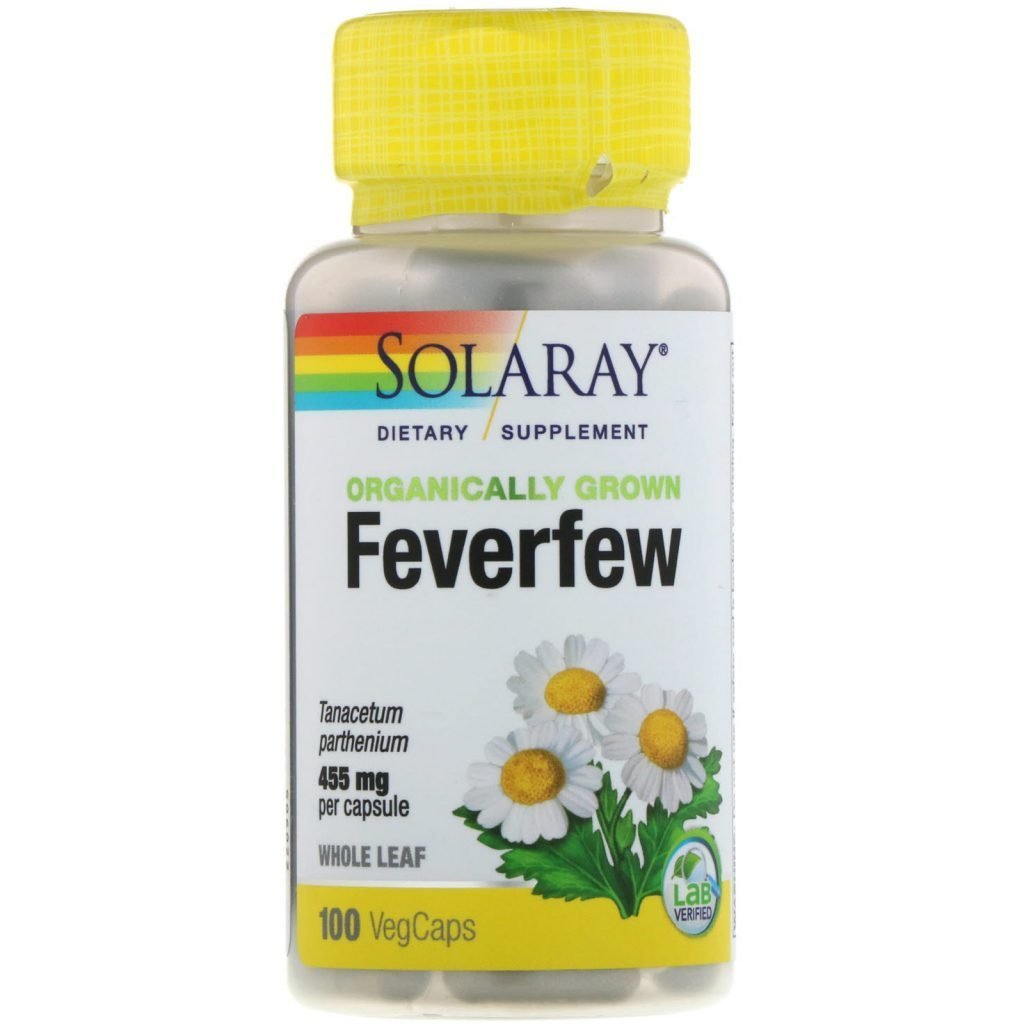Feverfew (Tanacetum parthenium), a perennial herb native to the Balkan mountains of Eastern Europe, has spread throughout Europe, North America, and Australia. Renowned for its daisy-like flowers and citrus-scented leaves, feverfew has been used for centuries in traditional medicine, primarily for treating fevers, migraines, and various other conditions. Modern science has turned its focus toward understanding how feverfew supplements can benefit health beyond traditional uses. This comprehensive guide delves into the multifaceted benefits of feverfew supplements, supported by both historical practices and current scientific research.
Historical Background and Traditional Uses
The name “feverfew” is derived from the Latin word “febrifugia,” meaning “fever reducer.” Its use dates back to ancient times when it was prescribed for a range of ailments, including fever, arthritis, and digestive problems. In the 17th century, herbalists and physicians recommended feverfew for migraines, a practice that has persisted into modern times. This historical use has laid the groundwork for contemporary research into feverfew’s therapeutic properties.
Migraine Prevention and Relief
One of the most well-documented benefits of feverfew is its role in preventing and alleviating migraines. Research suggests that feverfew contains compounds that inhibit the production of prostaglandins, substances in the body that can cause inflammation, pain, and blood vessel constriction in the brain – all of which are associated with migraine headaches. Regular consumption of feverfew supplements has been shown to reduce the frequency, severity, and duration of migraine attacks in some individuals. It is believed that the parthenolide content in feverfew is primarily responsible for its anti-migraine effects.
Anti-inflammatory Properties
Feverfew’s benefits extend to its anti-inflammatory properties, making it a potential remedy for various conditions characterized by inflammation. The herb has been traditionally used to treat arthritis and rheumatic diseases, and recent studies support its efficacy in reducing inflammation. The parthenolide in feverfew can inhibit the release of inflammatory substances, thereby potentially easing symptoms associated with chronic inflammatory diseases.
Antioxidant Effects
Feverfew is rich in antioxidants, which protect the body’s cells from damage caused by free radicals. These antioxidant properties contribute to the herb’s potential in preventing chronic diseases, including heart disease and cancer. By scavenging harmful free radicals, feverfew supplements can help maintain cellular health and reduce the risk of disease development.
Cardiovascular Health
Feverfew may also offer benefits for cardiovascular health through its ability to inhibit platelet aggregation, a process that can lead to blood clot formation. By preventing platelets from clumping together, feverfew supplements could potentially reduce the risk of heart attacks and strokes, particularly in individuals with atherosclerosis or those at high risk for cardiovascular diseases.
Potential Anti-cancer Properties
Emerging research has begun to explore feverfew’s potential anti-cancer properties. Some studies suggest that parthenolide and other compounds in feverfew can induce apoptosis (programmed cell death) in cancer cells without harming normal cells. While this research is in its early stages, it indicates that feverfew could have a future role in cancer prevention and treatment strategies.
Skin Health
Feverfew has been traditionally used for its benefits to skin health, including the treatment of dermatitis and improving skin complexion. Its anti-inflammatory and antioxidant properties may help soothe irritated skin, reduce redness, and protect against environmental damage. Some cosmetic products now include feverfew extracts to leverage these benefits.
Usage and Dosage
Feverfew supplements are available in various forms, including capsules, tablets, liquid extracts, and teas. While there is no standard dose, most studies have used doses ranging from 50 to 150 mg of feverfew extract daily. It’s important for individuals to follow manufacturer recommendations or consult a healthcare provider to determine the appropriate dosage based on their specific health needs.
Safety and Side Effects
Feverfew is generally considered safe when used appropriately. However, some individuals may experience side effects, including gastrointestinal discomfort, mouth ulcers, and dizziness. Pregnant women should avoid feverfew, as it may stimulate uterine contractions. Individuals with allergies to other members of the daisy family, such as ragweed, marigolds, and chrysanthemums, may also be allergic to feverfew.
Conclusion
Feverfew supplements offer a wide range of health benefits, from migraine relief and anti-inflammatory effects to potential roles in cardiovascular health and cancer prevention. Backed by centuries of traditional use and increasingly supported by scientific research, feverfew stands out as a valuable herbal supplement. However, as with any supplement, it’s essential to use feverfew cautiously and consult with a healthcare provider to ensure it’s appropriate for your health needs and conditions. Whether used for specific health concerns or general well-being, feverfew supplements can be a beneficial addition to a holistic health regimen, offering natural relief and protection for various health issues.
- Indulge in Relaxation: A Fun Review of Just CBD’s Bath Bombs, Lotions, and Oils - September 16, 2024
- Exploring JustCBD UK’s Vape Cartridges: Sour Diesel vs. Live Resin Experience - August 30, 2024
- Benefits of Feverfew Supplements - April 1, 2024

